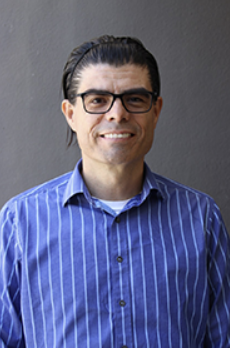Education
Ph.D. - Justice Studies, Arizona State University
MA – Cultural Anthropology, University of Texas at San Antonio
BA – Philosophy, Universidad Michoacana
Dr. Ferreyra earned his J.D. from Universidad Michoacana, an M.A. in Cultural Anthropology from the University of Texas at San Antonio, and his Ph.D. in Justice Studies from Arizona State University. He teaches Judicial Organization, Multiculturalism in the Criminal Justice System, Written Communication in Criminal Justice, Ethics and Professional Responsibility, and other subjects. Dr. Ferreyra's research interests are drug trafficking, transnational organized crime, drugs, courts, law, corruption, U.S. drug policy, social justice, and the U.S.-Mexico border. He has published several peer-reviewed articles on his area of expertise and is currently conducting research along the U.S.-Mexico border to understand the region from a multidisciplinary perspective better.
My pedagogical approach is based on the assumption that I am a ‘teacher-scholar’ committed to serving the community of our diverse student body at CSULA through teaching, advising, scholarship, and university service from a unique perspective in an innovative and interdisciplinary fashion. Although my research is focused mostly on topics around drug trafficking, U.S. drug policy, and the Southern border, my classes emphasize a holistic perspective of criminal justice and criminology where critical thinking is the main instrument to create awareness in students. This approach enables them to understand—from a critical perspective—everyday situations related to issues of crime and the administration of criminal justice that occur in society today.
Teaching for me is a vocation, not a job because I am a people person and enjoy being in front of the class, sharing my perspectives on the discipline while making a difference for students as they learn new knowledge, gain insights, and their lives are changed. I seek to promote a well-rounded perspective of the criminal justice discipline where students can discover by themselves new lenses and skills with which to interpret and understand the criminal justice system (CJS) and the world. This approach is meant to facilitate the conditions for students to reach their potential as future members of the CJS and lead meaningful and productive lives.
Contact Information:
Office: Room 251, Hertzberg-Davis Forensic Science Center
Email: [email protected]
Phone: (323) 343-6231
Research Interests:
Drug trafficking, transnational organized crime, drugs; courts, law, corruption, U.S. drug policy, social justice, U.S.-Mexico border
Courses Taught:
Judicial Organization
Multiculturalism in the Criminal Justice System
Written Communication in Criminal Justice
Ethics and Professional Responsibility
